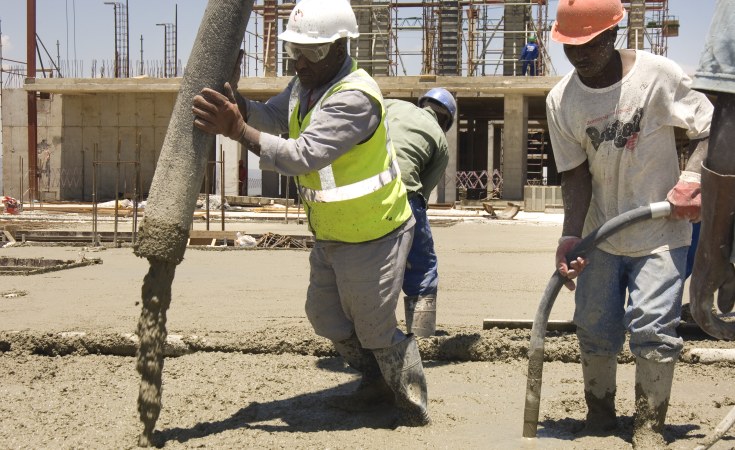Africa's economic growth and poverty reduction are closely linked with the quality of its infrastructure – its power, transport systems, water supply and sanitation, and its ICT networks. In the current economic climate, finding the financial resources for Africa's huge infrastructure needs is an enormous challenge.
But without those resources, African governments will find it very difficult to catch up with other regions of the world. The continent's institutions and international partners must work together to overcome this challenge – and quickly.
When I think about infrastructure in Africa, I am both encouraged and concerned. The percentage of African people living within the range of mobile phone service rose from 5 percent in 1999 to 57 percent in 2006. More than 100 million plus Africans became mobile phone subscribers in the same period. Around 80 percent of Africa's main road network is in good or fair condition.
Yet, I think about all the women and children in Africa who walk over 2 kilometers to their primary water supply. Thirty African countries experience chronic power outages and around 560 million people in sub-Saharan Africa lack access to modern energy. Because only one in four Africans has access to electricity, I think about the children who are forced to study by candlelight or the hospitals that can't refrigerate medicines properly.
Investments in infrastructure are now more important than ever. They can help stimulate the economy, remove bottlenecks to long-term growth, and create jobs.
Better infrastructure could increase productivity of business by as much as 40 percent. In the last decade the telecommunication revolution contributed to half of Africa's improved growth performance; however, during the same period, deficiencies in power infrastructure impeded growth dramatically.
A new study about infrastructure in Africa has just been published and I hope it spurs the investment Africa needs.
Africa's Infrastructure – a Time for Transformation provides policymakers, investors, thinktanks, academia and civil society with a wealth of new information and analysis about the state of infrastructure and finances around the continent.
The study is the flagship of the Africa Infrastructure Country Diagnostic (AICD), an initiative that is the result of a partnership between the African Union Commission, the African Development Bank, the Development Bank of Southern Africa, the Infrastructure Consortium for Africa, the New Partnership for Africa's Development and the World Bank.
The study finds that to play catch-up on infrastructure with other parts of the world, meet the Millennium Development Goals, and achieve national development targets in Africa within 10 years, an annual investment of U.S. $93 billion is required.
This is equivalent to 15 percent of the continent's GDP, twice the investment estimated by the Commission for Africa's report in 2005, and is comparable to what China invested in infrastructure in the last decade. Of this $93 billion, two-thirds is required to build new infrastructure and rehabilitate infrastructure that is in disrepair and one-third is needed for operations and maintenance of existing facilities.
The good news is that Africa already spends $45 billion a year or almost half the required amount on infrastructure. Surprisingly, an impressive two-thirds of this spending is domestically funded by the public sector and African taxpayers; one-third comes from donors and overseas investors.
Africa could generate an additional $17 billion from existing resources through improving various aspects of efficiency, such as better maintenance of infrastructure assets, improved budgetary procedures, closer regional integration, faster institutional reform, better management of utility networks and greater cost recovery.
Even after efficiency gains are realized, a substantial funding gap of $31 billion will remain, particularly for power infrastructure and fragile states. This is where I hope African institutions and international organizations and investors can come together.
However, raising more funds without tackling inefficiencies would be like pouring water into a leaking bucket. So let African governments and utility operators make addressing the $17 billion efficiency gap a pressing policy priority. Africa's people cannot wait. The time for action is now.
Obiageli Ezekwesili is the World Bank's vice-president for the Africa Region.


